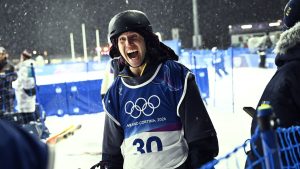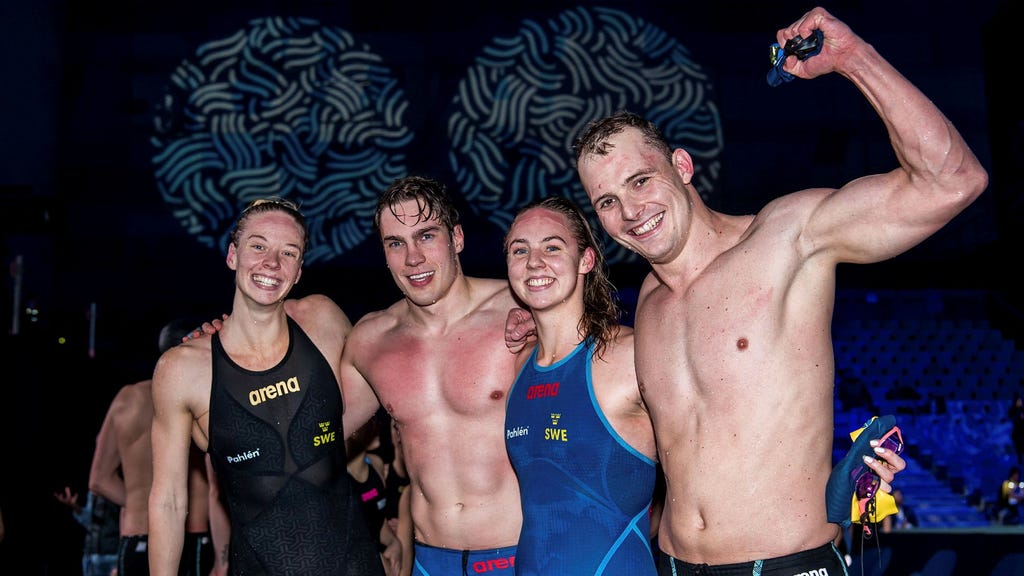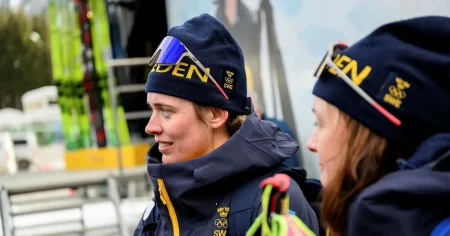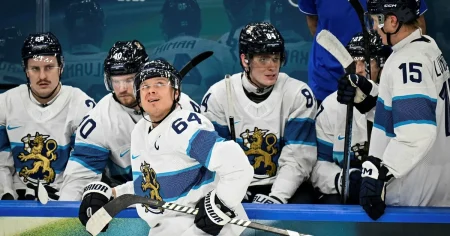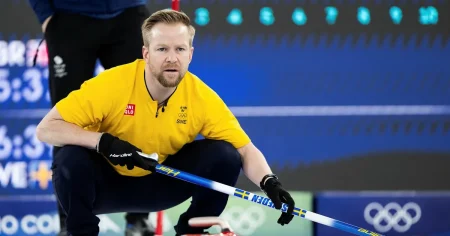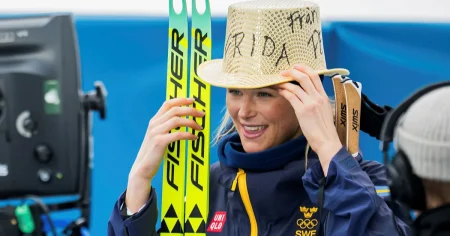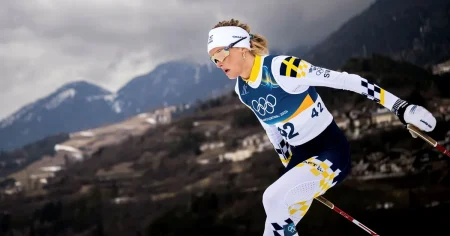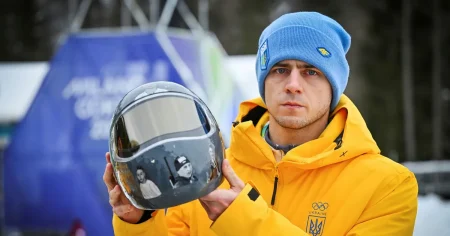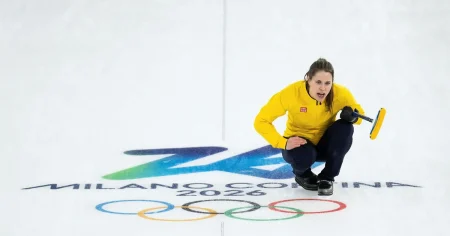The Swedish mixed 4x50m medley relay team, composed of Louise Hansson, Daniel Kertes, Sara Junevik, and Elias Persson, delivered a stunning performance in the heats, clocking the second-fastest time and setting a new national record. This impressive feat generated considerable excitement and anticipation for the evening’s final. However, the landscape shifted as several competing nations elevated their game, pushing the Swedes to further refine their performance. Despite shattering their freshly minted national record in the final, the quartet’s time of 1:37.05, a remarkable 0.23 seconds faster than their preliminary swim, was only sufficient for a sixth-place finish. The podium was occupied by the Russian team (competing under a neutral flag), Canada, and the United States, with Sweden finishing 0.85 seconds behind the bronze medalists. While the relay team’s performance showcased their potential and dedication, the challenging competition highlighted the narrow margins separating the top contenders in this fiercely contested event.
The evening’s events in Budapest proved to be a mixed bag for the Swedish contingent. Despite the relay team’s valiant effort, individual performances fell short of expectations. Louise Hansson, the reigning world champion from three years prior, finished last in the 100m backstroke final. Her time of 56.52 seconds was a stark contrast to her previous gold-medal winning performance, reflecting a struggle to maintain stamina throughout the race. Hansson attributed her disappointing result to fatigue, admitting that her legs couldn’t sustain the necessary power in the latter stages of the competition. This outcome underscored the demanding nature of elite swimming and the constant pressure to maintain peak physical condition.
Further adding to the Swedish team’s challenges, both Sara Junevik and Sophie Hansson saw their respective campaigns come to an end in the semi-finals. Junevik, competing in the 100m freestyle, and Hansson, in the 100m breaststroke, were unable to secure spots in the finals, highlighting the intense level of competition at this international event. These setbacks emphasized the depth of talent present in the global swimming landscape and the ongoing struggle for Swedish swimmers to maintain their standing among the world’s elite. The evening’s results underscored the need for continued development and strategic adjustments to achieve future success on the world stage.
In contrast to the Swedish team’s struggles, the final session was marked by an extraordinary performance from Swiss star Noe Ponti in the 50m butterfly. Ponti, already holding the world record from the heats, further cemented his dominance by shattering his own record in the final. His blistering time of 21.32 seconds, an improvement of 0.11 seconds on his previous mark, showcased his exceptional talent and solidified his position as the undisputed king of the 50m butterfly. This breathtaking display of speed and precision served as a highlight of the evening, capturing the attention of the swimming world and further elevating Ponti’s status as one of the sport’s most remarkable athletes.
The contrasting fortunes of the Swedish team and Noe Ponti highlighted the unpredictable nature of competitive swimming. While the Swedish swimmers faced setbacks and disappointments, Ponti’s record-breaking performance served as a reminder of the heights that can be achieved through dedication, talent, and unwavering focus. The evening’s events provided a valuable learning experience for the Swedish team, offering insights into areas for improvement and the necessary adjustments to achieve future success. For Ponti, his triumph served as a testament to his extraordinary abilities and solidified his place as a dominant force in the world of swimming.
The World Aquatics Championships in Budapest offered a compelling showcase of both triumph and disappointment. While the Swedish team experienced setbacks in their individual and relay events, their performances underscored the dedication and commitment of these athletes to their sport. The struggles they faced highlighted the ongoing need for development and adaptation to remain competitive on the global stage. Conversely, Noe Ponti’s record-breaking achievement served as an inspiration, demonstrating the pinnacle of athletic performance and the rewards that come with relentless pursuit of excellence. The championships provided a captivating glimpse into the world of elite swimming, showcasing the highs and lows of competition and the unwavering dedication of athletes from around the globe.


